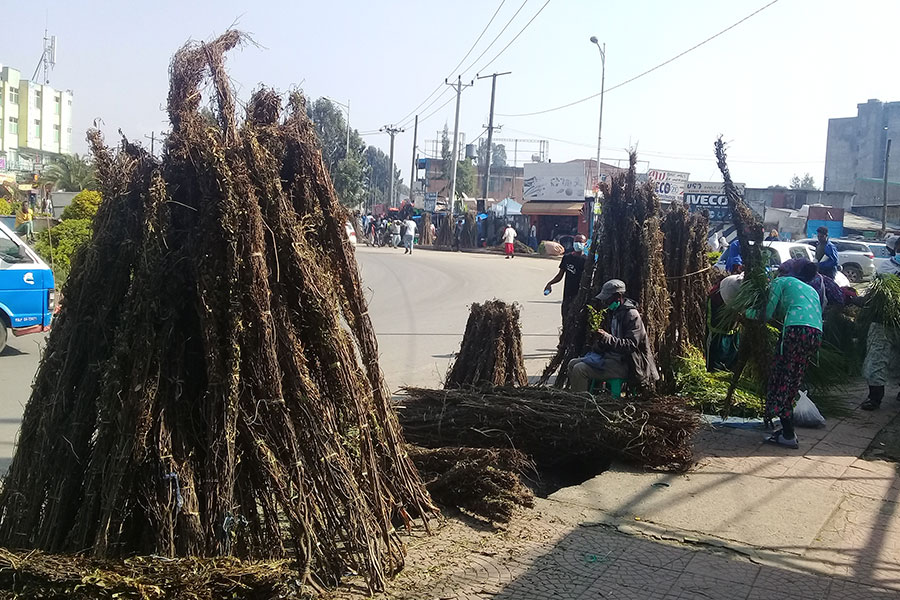
Agenda | Sep 26,2021
Before Game of Thrones, The Sopranos and The Wire, there was Oz, the TV show that started it all for Home Box Office (HBO). But not only for HBO, it was one of the first experiments with a TV series where filmmakers tried to rely less on cliffhangers and more on a literature-inspired exploration of the human condition. They are character studies, and like Game of Thrones, The Sopranos or The Wire, the subject matters are people with questionable scruples and motives, instead of the morally unimpeachable and self-righteous protagonists of the usual TV fare.
Oz started airing in 1997 and went on for six seasons. It has been nearly two decades since it wrapped up.
Why talk about it now? Is it still relevant?
It is, especially for Ethiopia, where hope is found in very little supply, like in the maximum-security prison Oswald State Penitentiary, aka Oz. Much of the prison population is offenders incarcerated for, mainly, at least two decades in prison. Most of them know they will be rotting in jail for most of their young lives with nothing to show for it. And this is if they are lucky; if they manage to survive the constant threat of violence and rampant rape from other inmates or even correctional officers, or do not become addicts to the thriving underground drug market and eventually overdose.
Much of the storyline revolves around the attempts of the prison staff to rehabilitate the inmates. An experimental unit known as Emerald City, from the magical land in the Wizard of Oz, is where many of the main characters are held. The unit operates with a different set of rules than the rest of Oz, allowing prisoners more freedom and privileges. Most have work details, sports such as basketball take place and there are even classes.
The idea behind the experimental unit, and the attempts of several of the prison staff who go a great deal of distance to sympathise with the prisoners, whatever their offence, is that the inmates are there because of their socio-economic status. Domestic abuse, poverty and substance addiction lie behind their transgressions and thus could eventually be rehabilitated with patience, religion, counselling and education.
This is easier said than done. The missing ingredient is always hope.
What more is there to look forward to for someone who will spend the rest of their lives in prison? How can anyone be rehabilitated from violence when their overriding priority is to survive in a prison riddled with violence?
Oz is essentially six seasons of individuals desperately attempting to find redemption but constantly falling. Like most Ethiopians, they then turn to gangs (organised along the fault lines of race, ethnicity, religion and even sexual orientation) which provide a sense of common identity or belongingness. Being a member of a gang also offers the best chance of surviving the violent world of Oz. The vicious circle continues.
Oz is not a perfect TV show, like The Wire or even The Sopranos. It has major flaws. One of the most visible is gratuitous nudity and violence, making Game of Thrones seem mild by contrast. There are also way too many plot holes and subplots that test the audience’s suspension of disbelief.
A doctor falling in love with an inmate who had her husband murdered is hard to digest. Sympathy is one thing, but actual romantic feelings go too far. This is not to mention the flurry of murders in the prison that would have been significantly reduced had the prison facility invested in some CCTV cameras and the lack of accountability for the warden and the correctional officer. Most offensive was a short-lived subplot that saw a handful of inmates take part in a medical experiment that sees them physically ageing, which seemed like sci-fi territory.
Still, Oz did not deserve to get this overshadowed by the likes of The Sopranos. The style of its filmmaking (including the creative metaphor-charged narration by Harold Perrineau), the performances (especially by Eamonn Walker, Dean Winters, Perrineau and Adewale Akinnuoye-Agbaje) and the unfailing effort by the writers for the audience to sympathise with the characters are inspiring. It is still a relevant series, especially for those caught in a metaphorical prison, without much hope.
PUBLISHED ON
Sep 04,2021 [ VOL
22 , NO
1114]

Agenda | Sep 26,2021

Radar | Oct 02,2021

Fortune News | Jul 03,2021

Radar | Dec 25,2021

Radar | Sep 10,2021

Films Review | Jan 18,2020

Radar | Aug 14,2021

Fortune News | Jul 12,2021

Radar | Jul 31,2021

Fortune News | Jul 18,2021

Photo Gallery | 180297 Views | May 06,2019

Photo Gallery | 170494 Views | Apr 26,2019

Photo Gallery | 161524 Views | Oct 06,2021

My Opinion | 137271 Views | Aug 14,2021

Nov 1 , 2025
The National Bank of Ethiopia (NBE) issued a statement two weeks ago that appeared to...

Oct 25 , 2025
The regulatory machinery is on overdrive. In only two years, no fewer than 35 new pro...

Oct 18 , 2025
The political establishment, notably the ruling party and its top brass, has become p...

Oct 11 , 2025
Ladislas Farago, a roving Associated Press (AP) correspondent, arrived in Ethiopia in...

Nov 2 , 2025
The National Bank of Ethiopia (NBE) has scrapped the credit-growth ceiling that had s...

Nov 2 , 2025 . By SURAFEL MULUGETA
The burgeoning data mining industry is struggling with mounting concerns following th...

Nov 2 , 2025 . By YITBAREK GETACHEW
Berhan Bank has chosen a different route in its pursuit of a new headquarters, opting for a transitional building instea...

Nov 2 , 2025 . By BEZAWIT HULUAGER
Nib International Bank S.C. has found itself at the epicentre of a severe governance...